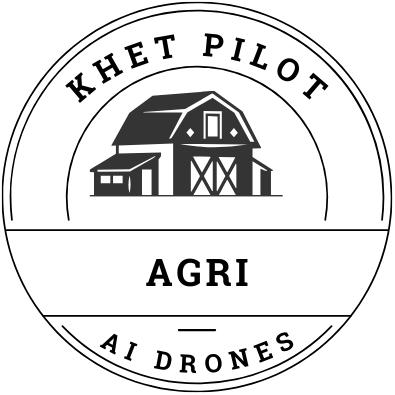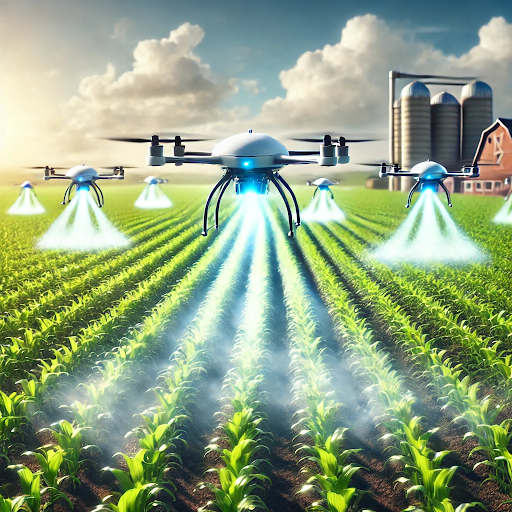Imagine a future where pesticides are applied in the most precise manner; that saves a lot of time, provides less waste, and develops better health from the inside of the crops—-all while encouraging sustainability. Pesticide drones/spraying drones are making this happen. These new flying machines are transforming agriculture with streamlined pesticide applications that provide fast, precise, and targeted treatments for crops. Curious as to what these drones can do for your farming business? Read ahead to see the advantages and how these spraying drones will transform agriculture
What Are Pesticide Drones
In simple terms, it is an unmanned aerial vehicle carrying an applicator that sprays pesticides, herbicides, and other controls on plants. It flies over the fields and targets those areas that need attention, precisely delivering chemicals. This modern crop protection answer largely replaces the traditional and labor-intensive methods used for these purposes.
Why Pesticide Drones Matter
- Precision Application
While traditional pesticide spraying might lead to overuse of chemicals, causing waste and harm to the environment, these agri drones allow for much more precise application. These spraying drones apply the treatment only where needed, utilizing complex mapping and GPS technology. - Time and Labor Savings
The workforce is no longer required to manually spray the fields or operate heavy machines, as these drones can spray large areas quickly with minimal human effort. This makes the process less time-consuming, cuts down on labor costs, and allows farmers to concentrate on more essential tasks. - Environmentally Friendly
By targeting only the problem areas, these drones minimizes runoff and reduces environmental effects. This results in less wastage of pesticides and a better ecological option for crop management results. - Valuable Data for Better Decisions
One of the best outcomes of having these drones spraying the fields is that every flight harvests key data on crop health and pesticide effectiveness. Cross-analyzed data collected on this basis could refine subsequent applications and empower farmers to make more informed decisions, leading to better yields and healthier plants.
How Pesticide Drones Benefit Agricultural Businesses
For agricultural businesses, the implementation of spraying drones has several benefits:
- Cost Savings: More precise spraying means less need for chemicals and less labor. It also translates into cost savings and higher profit margins.
- Scalability: Whether it is a small farm or a large agricultural operation, these drones can scale up to meet the needs without a proportional increase in resources.
- Sustainability: Businesses cut back on pesticides and reduce their environmental footprint—-the very selling point for today’s eco-conscious consumers.
| Drones in Farms: Pesticide Use Reduced by 15% A study showed that drones reduced pesticide use by 15%, especially during drought conditions. Researchers tested various pesticide quantities to identify the optimal amount for effective foliar spraying. |
The Future of Pesticide Drones
As the technology of drones continues to advance, these drones are becoming smarter, more efficient, and responsive. Future additions may include AI-driven pest detection, automated pesticide mixing, and even drone swarms for even larger coverage areas.
Why Invest in Spraying Drones?
These spraying drones provide an intelligent way for companies looking to make operational improvements of efficiency, cost, and sustainability investments. They represent a step forward in crop protection, giving a company an edge over competitors in a highly competitive marketplace.
FAQs
In what way does this lead to improved pesticide application accuracy?
Pesticide drones rely on advanced GPS and mapping technologies, thereby acquiring a field section where the proper dosage could be applied and avoiding any waste.
Do pesticide drones work for larger farms?
Yes, they are very efficient at covering large fields, thus perfect for small, medium scale agricultural farming operations.
Are pesticide drones environment-friendly?
Yes, these drones minimize pesticide wasting as it applies chemicals only where necessary, which in turn limits water runoff. And the entire process is more eco-friendly.
Conclusion
Pesticide drones are not just a wave of the future. It is the future. By incorporating these futuristic tools into the game, businesses will be able to enhance yield, wean themselves away from spending their funds and make the agricultural industry more sustainable.

